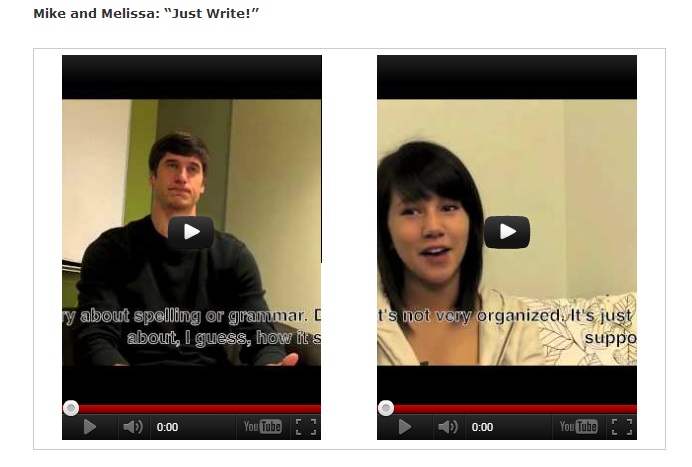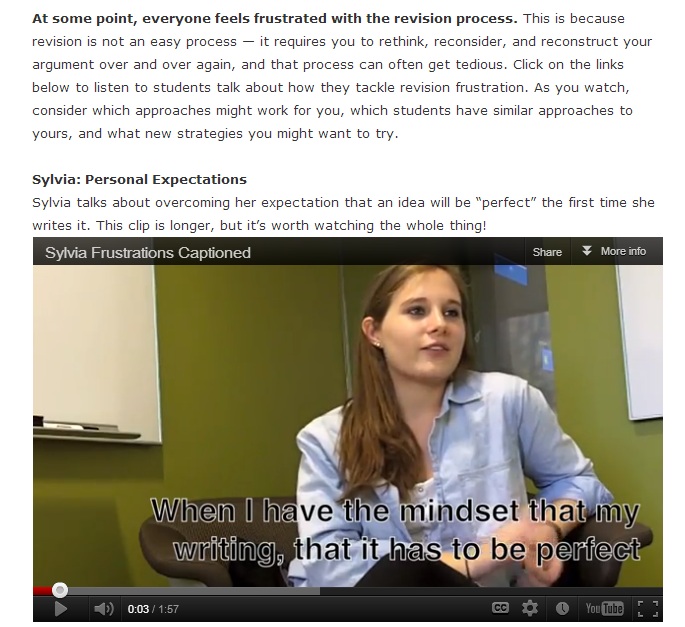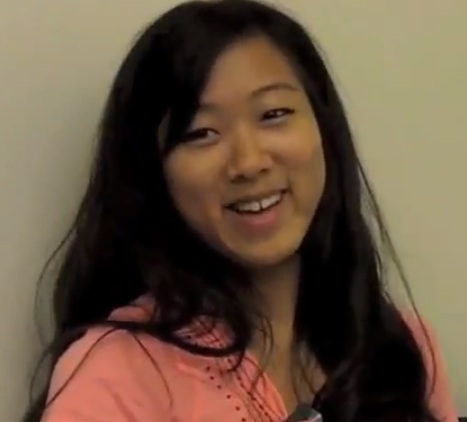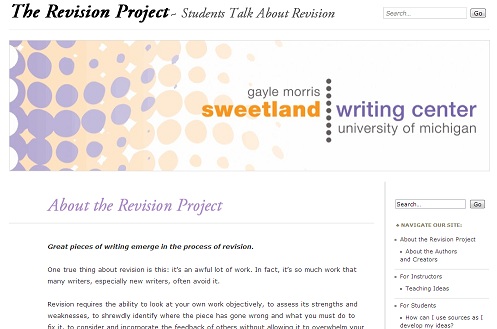What did you do this summer? Memories of sitting in school on the first day, recounting the summer activities for our teachers in essays about experiences that couldn’t possibly be narrated in the short space we’d been allotted, come to mind. And yet, here on the DRC blog and in the cybersphere in general, reading about others’ summer exploits and current projects takes on new meaning, allowing us to share resources — both generated and found — and the things we’ve learned about composing with (and within) new media. With that in mind, our not-so-formulaic narrative goes something like this:
The characters: one Sweetland faculty member, Christine, and two graduate students – Liz and Liz, not to be confused with one another.
The setting: just about every computer lab on UM’s campus and various favorite food spots.
The conflict: how to challenge and portray the revision practices of composition students in a webspace designed for said students (and their instructors).
Some context: We work with an interdisciplinary team here at the University of Michigan. Our group designs “learning objects” (or: online resources for teaching and learning that are interactive, goal-driven, and assessable) for use in courses of various academic fields, from chemistry to statistics to history to, of course, writing. Our task: to build online learning spaces that writing instructors and their students will find useful, engaging, and educational. Where to begin?
In our own classrooms, of course, with knowledge we have gained from our combined 32 semesters of writing instruction. We knew that the best way to understand revision would be to talk about our own obstacles and the obstacles our students encountered. In our conversations, we found that in one way or another, we have all struggled to articulate the importance of comprehensive revision, the role it plays in effective pieces of writing, and the ways to go about engaging in the (sometimes long, often frustrating) process.
In Liz H.’s composition classroom, students and instructor often found “nuggets” hidden in the last few paragraphs of papers that later became central foci for students’ arguments, requiring extensive revision like what Sylvia describes (click on image to listen to Sylvia, on the right):

In Liz R.’s classroom, students wrestled with how to prioritize the many things they wanted to work on after the need for revision had been raised by peer reviews and instructor feedback. On top of that, they frequently got overwhelmed and frustrated because they couldn’t set these priorities and make a plan to address what they could in the time that they had.
In Christine’s classroom, students took up the challenge of coming to understand the important difference between editing and revision. Many of them were able to overcome previous writing habits and commit themselves to radically re-seeing and re-writing their work. To listen to Shirley talk about this obstacle, click on her image (below).

Our students’ voices and experiences became the foundation of what we are now calling The Revision Project, a website containing a collection of student voices and stories surrounding revision and all of the angst and accomplishment that accompanies it. After talking to a few of our students (big shout-out here to Josh, Sylvia, Melissa, Mike, Zeinab, Meaghan, Shirley, and Hannah) about their revision practices, we spent some time listening and re-listening to their thoughts and considering what they had to tell us about what’s terrible and what’s awesome about revision.
What followed is difficult to narrate with any sense of chronicity: armed with videos, it was time to clip, choose, clip again, re-choose, write, choose again, write more, re-clip, and caption. This iterative process taught us a lot about composing (and revising) in new media environments. We often found ourselves backtracking, asking questions about why we made a particular composition choice, re-drafting mock-up pages in our practice space, and changing our minds about the questions and categories that mattered most. These processes, we realized, are not so different from what we do when we write; however, as we composed in our hypertextual space, our approaches to composition and revision became even more apparent to us.

On a functional level, we learned how to clip and caption video quickly, how to store massive amounts of digital video using various storage and sharing tools, and how to move content across platforms. On a rhetorical level, we experimented with ways to compose that both kept the needs and interests of our users in mind and didn’t overextend our abilities as novice composers of digirhet artifacts. We are still building our site, which will eventually include more examples of these students’ revised essays, more adaptable lesson plans for instructors, links and references to research on revision, and maybe more. We invite you to visit, comment, and use the site in ways that matter to your curriculum, your context, and your students.
Thanks for reading, and best of luck as you conquer your own digirhet projects in the coming year!
Liz Homan, Liz Rodrigues, and Christine Modey
